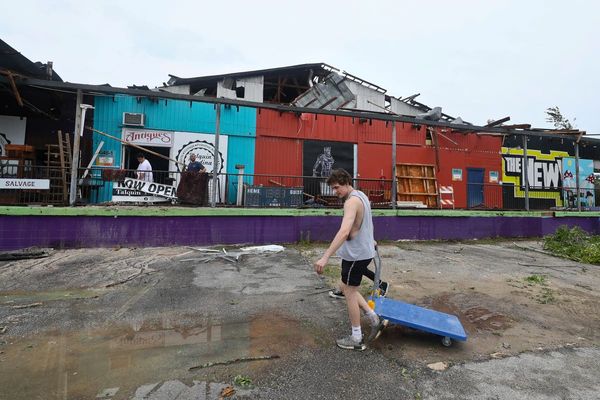
Malawians endured the country’s hottest weekend on record, with temperatures reaching nearly 20C above the seasonal average.
The heatwave began last Thursday with the government warning people to stay out of the sun, to keep hydrated, and avoid alcohol and caffeine. Some school buildings in the south of the country were evacuated, and children were taught in the shade of playground trees.
By Saturday, parts of Malawi saw a maximum temperature of 43C (109F), compared with an average of nearly 25C (77F) for the time of year. The temperatures had dropped by Monday, but in an advisory last week the country’s Department of Climate Change and Meteorological Services warned of a “prolonged period of hot and uncomfortable weather” throughout October.
Kick-off for Malawi’s Super League football matches was delayed for 30 minutes in an attempt to avoid the worst of the heat. Players were encouraged to take regular water breaks during matches.
Malawi experienced similar heat in November 2020, when a temperature of 37C was recorded. Experts are pointing to climate change as the cause of the extreme weather; global temperatures in 2023 have been the hottest on record.
“Even under the trees, there is still a hot breeze,” said a teacher at Jombo community secondary school in Chikwawa district, southern Malawi. “It’s very uncomfortable but we’ve not suspended classes, although students are struggling [to learn] due to too much heat.”
Elsewhere in the country, people have heeded the weather bureau’s recommendation to drink plenty of water throughout the day, “even if you don’t feel thirsty”.
The bureau also said: “Avoid alcohol and caffeine, as they can cause dehydration. Dress appropriately: wear light, loose-fitting clothing, and use sunscreen to protect your skin from harmful sunlight. Use hats, umbrellas and sunglasses.”
It also warned of serious health risks to vulnerable groups, such as elderly people, young children and those with health conditions, though there have not yet been any reports of rising hospital admissions or deaths.
• This article was amended on 17 October 2023 to provide more precise temperature differences.







